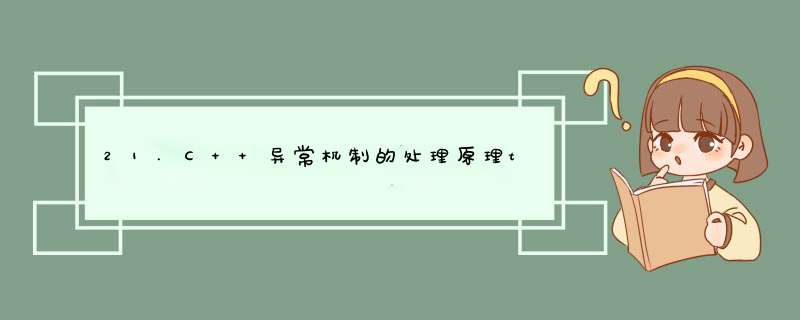
#include堆栈的实现using namespace std; float Div(int a,int b)//throw(int,float)//表示只允许返回这两种类型异常 { if(b == 0) { short x; throw x; } return a*1.0/b; } int main() { int a; int b; cin>>a>>b; float result =0.0f; try//测试语句 { result = Div(a,b); } catch(int)//捕获语句返回的异常 { cerr << "int b==0" << 'n'; } catch(float) { cerr << "float b==0" << 'n'; } catch(...)//其他异常返回 { cerr << "b==0" << 'n'; } cout<< result; return 0; }
#includeusing namespace std; template class Stack { private: int capacity; int top; Type *idata; enum { STACK_SIZE = 8 //设置堆栈的最小数据结构 }; public: Stack(int size = STACK_SIZE); ~Stack(); public: bool Push(const Type &data); bool Pop(void); bool IsFull(); bool IsEmpty(); void Show() const; }; template void Stack ::Show() const//遍历栈元素,const方法是防止修改栈内元素 { for (int i = top - 1; i >= 0; i--) cout << idata[i] << endl; } template bool Stack ::IsFull()//是否满栈 { return top >= capacity; } template bool Stack ::IsEmpty()//是否是空栈 { return top <= 0; } template bool Stack ::Pop(void)//d出 { if (IsEmpty()) { cout << "Stack is empty !" << endl; return false; } else { top = top -1; return true; } } template bool Stack ::Push(const Type &data)//压栈 { if (IsFull()) { cout << "Stack full !" << endl; return false; } else { idata[top++] = data; return true; } } template Stack ::Stack(int size)//初始化 { capacity = size > STACK_SIZE ? size : STACK_SIZE; idata = new Type[capacity]; top = 0; } template Stack ::~Stack()//析构 { if (idata != NULL) delete[] idata; idata = NULL; top = 0; capacity = 0; } int main() { Stack s(7); for (int i = 0; i < 10; i++) { s.Push(i); } s.Show(); return 0; }
欢迎分享,转载请注明来源:内存溢出

 微信扫一扫
微信扫一扫
 支付宝扫一扫
支付宝扫一扫
评论列表(0条)